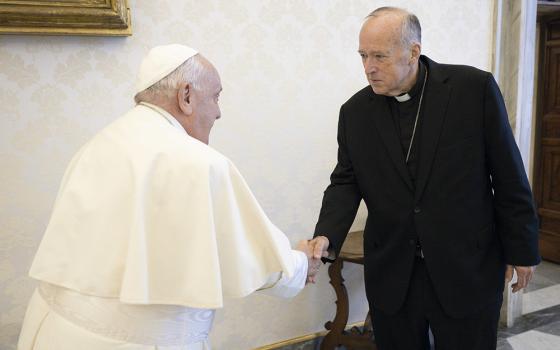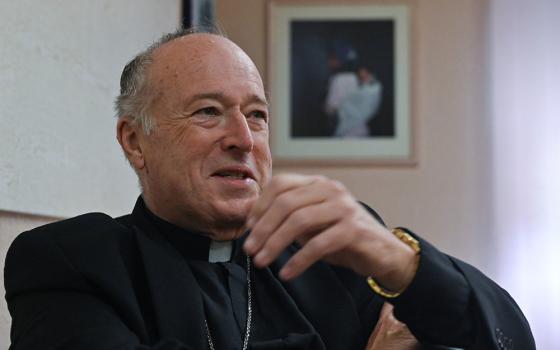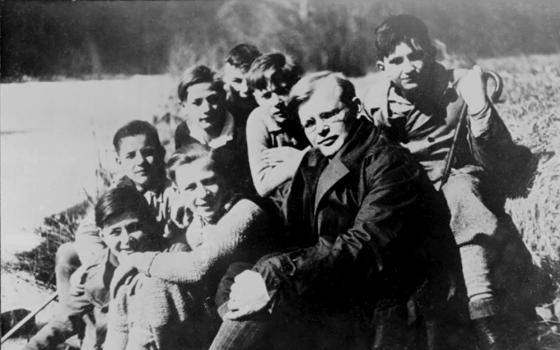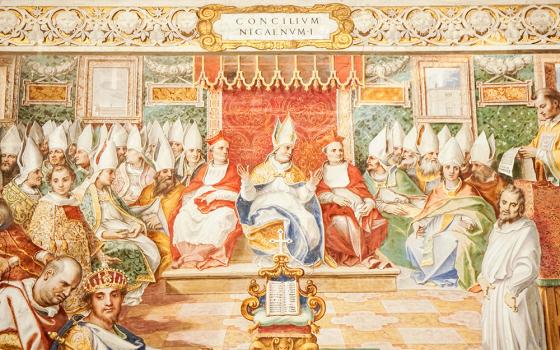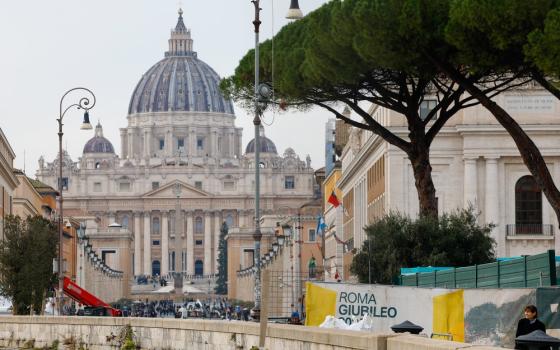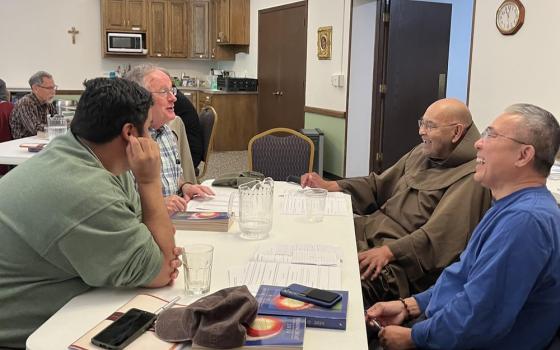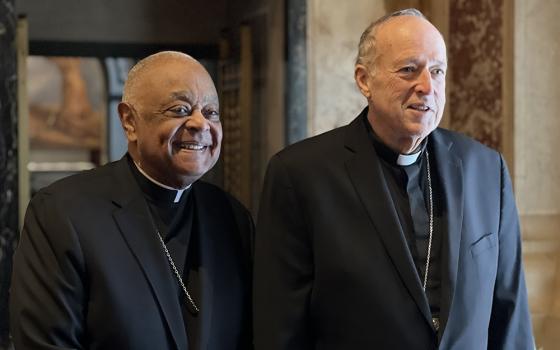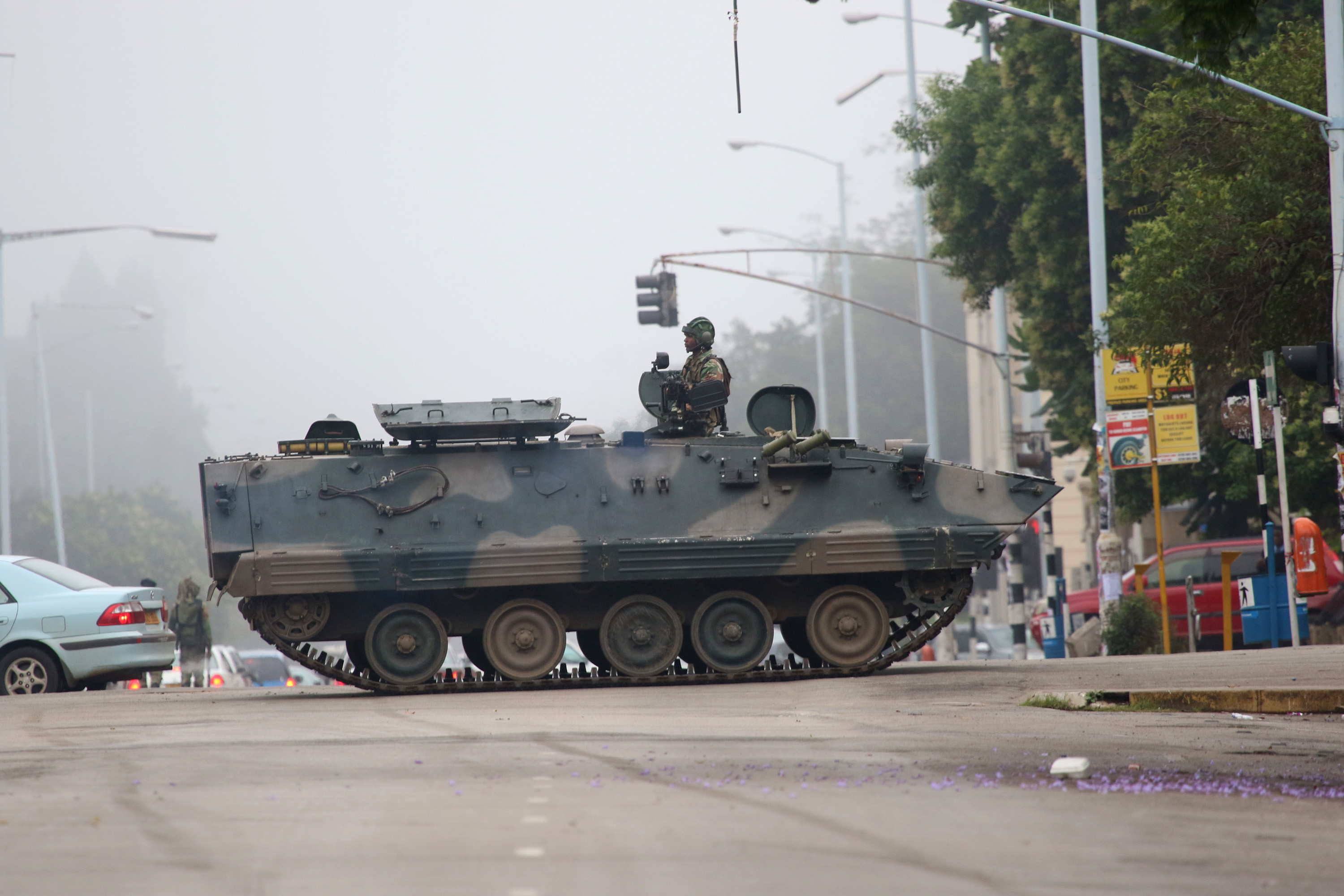
An army tanker blocks the main road to Parliament building Nov. 15 in Harare, Zimbabwe. (CNS /EPA/Aaron Ufumeli)
A Catholic official in Zimbabwe said church leaders' experience working together "will serve us well" as they tried to decide how to respond to the military seizing power.
"We don't know yet what is happening," Paul Muchena, coordinator for the Catholic Commission for Justice and Peace in Zimbabwe, said in a Nov. 15 telephone interview from Harare, where bishops and clergy gathered in the capital for an emergency meeting.
Zimbabwe's army seized power earlier that day, with a spokesman giving assurances on national television that they were "only targeting criminals" around President Robert Mugabe; he said the 93-year-old leader and his family were safe.
Bishop Abel Gabuza of Kimberley, South Africa, who chairs the Southern African Catholic Bishops' Conference justice and peace commission, said the military action in Zimbabwe was "not expected."
"We are very disturbed at what's happening" in neighboring Zimbabwe, he said in a Nov. 15 telephone interview from Pretoria, noting that "it has all the ingredients of a coup."
"This is the price one pays when the democratic process has been undermined for so long," Bishop Gabuza said.
Mugabe has led Zimbabwe for 37 years.
Danisa Khumalo, director of the Denis Hurley Peace Institute in Pretoria, told Catholic News Service: "People in Harare told me today that there are soldiers on the streets, but people are mostly continuing" with their daily routines.
Zimbabweans "are desperate for change," Khumalo said, noting that "some are excited now and are saying that it doesn't matter" where this change comes from.
"But running a country through martial law sets a bad precedent," he said. "This is unconstitutional, and Zimbabwe needs to look urgently at how it can return to civilian rule."
Bishop Gabuza expressed concern for the safety of people in Zimbabwe.
"We hope a resolution is found soon," he said, noting that the southern African region needs a "politically and economically stable Zimbabwe."
Mugabe's policies are widely blamed for Zimbabwe's economic decline over the past two decades.
"People with degrees are standing on the side of Harare's streets selling airtime, if they haven't yet managed to get out of the country," Khumalo said.
Millions of economic refugees have left the country, with most going to South Africa.
"Zimbabweans are becoming more and more impoverished," Khumalo said, noting that "Zimbabwe doesn't even have its own currency, and obtaining cash is very difficult now."
Muchena said Zimbabwe's Christian leaders, including Catholics, had recently issued a statement on "tolerance, respect and the need for dialogue" before scheduled 2018 general elections. In the early November statement, the religious leaders called for "a commitment to nonviolence during the electoral processes."
In another early November joint statement, the bishops' conference and the Zimbabwe Council of Churches said the country's politics had become "poisonous, and there is no more civilized debate in our institutions."
Political opposition is treated as treachery by Mugabe's government, they said.
Advertisement
Reuters, the British news agency, reported that on Nov. 13, Gen. Constantino Chiwenga said the army refused to accept the firing of Zimbabwean Vice President Emmerson Mnangagwa and the purging of his supporters.
Mnangagwa, a former security chief, was ousted early November to pave the way for Mugabe's 52-year-old wife, Grace, to succeed him.
